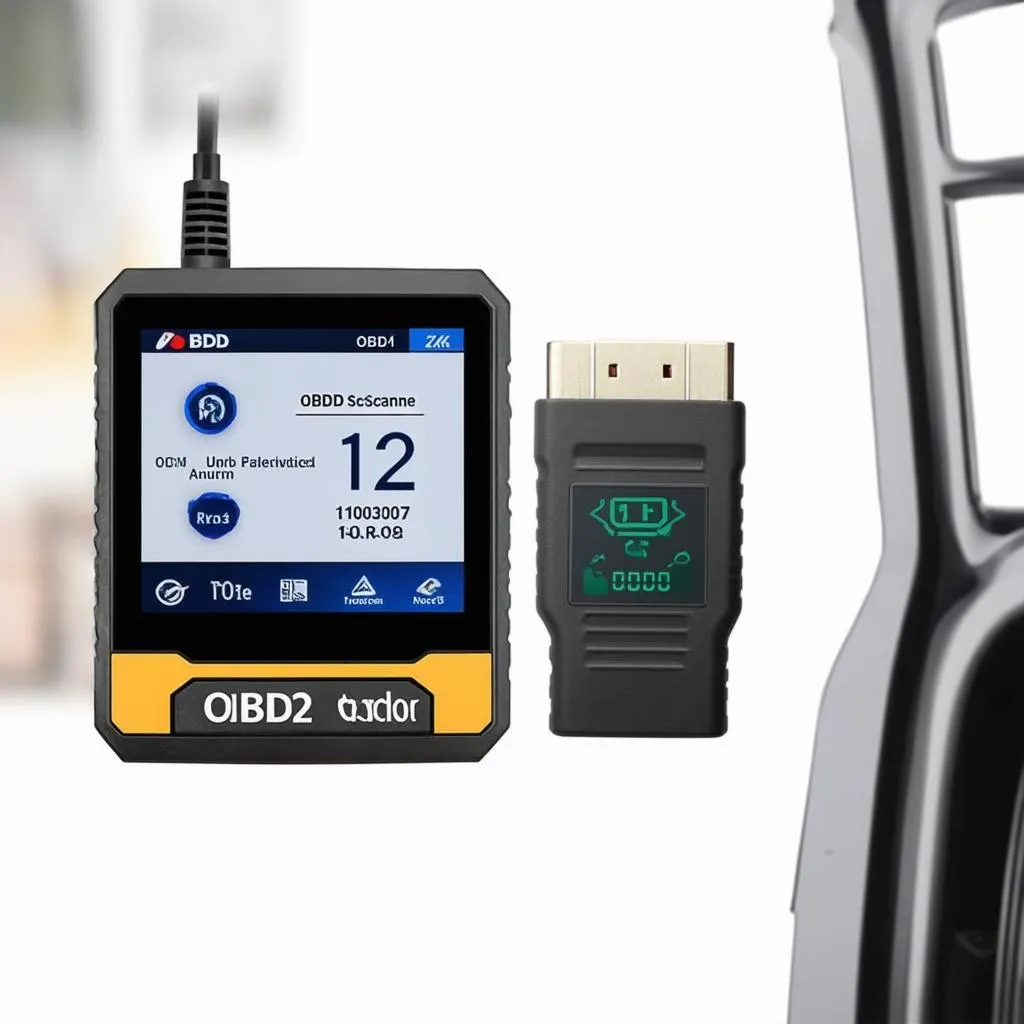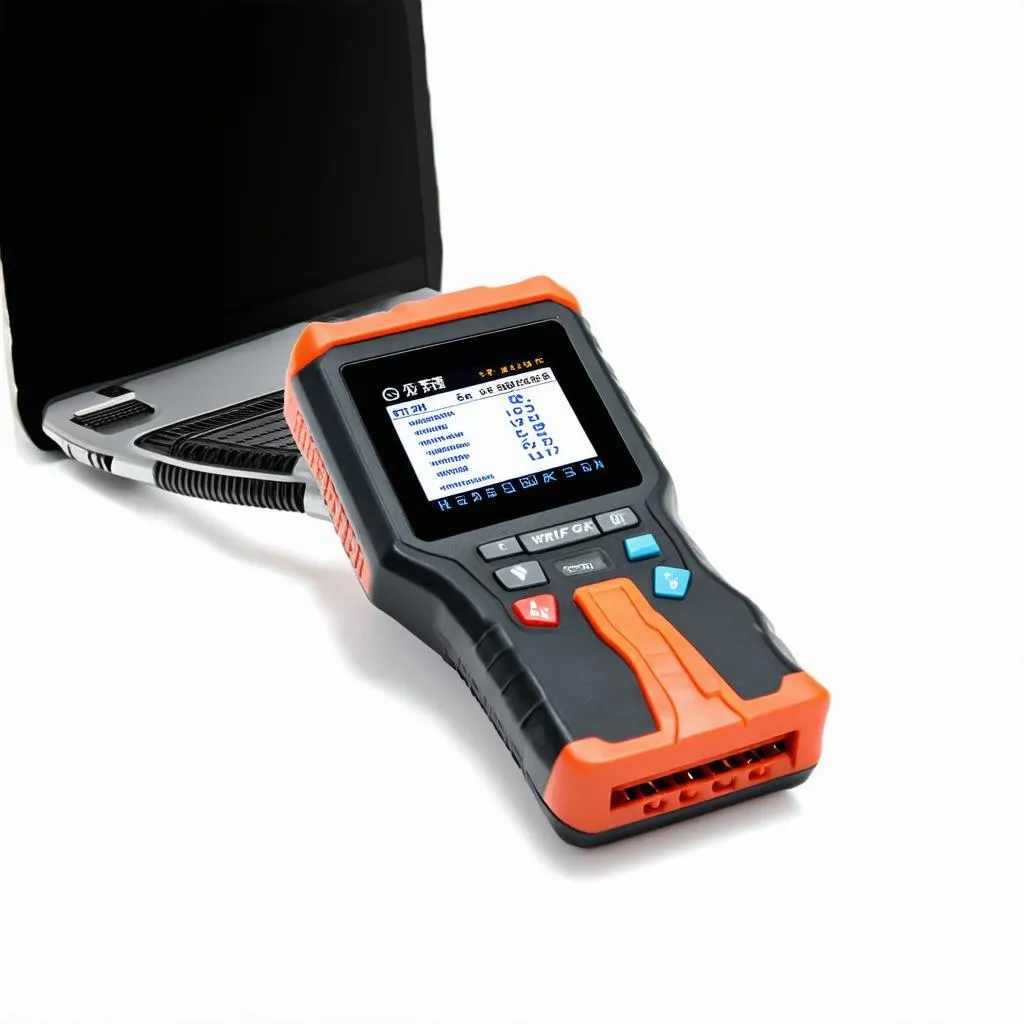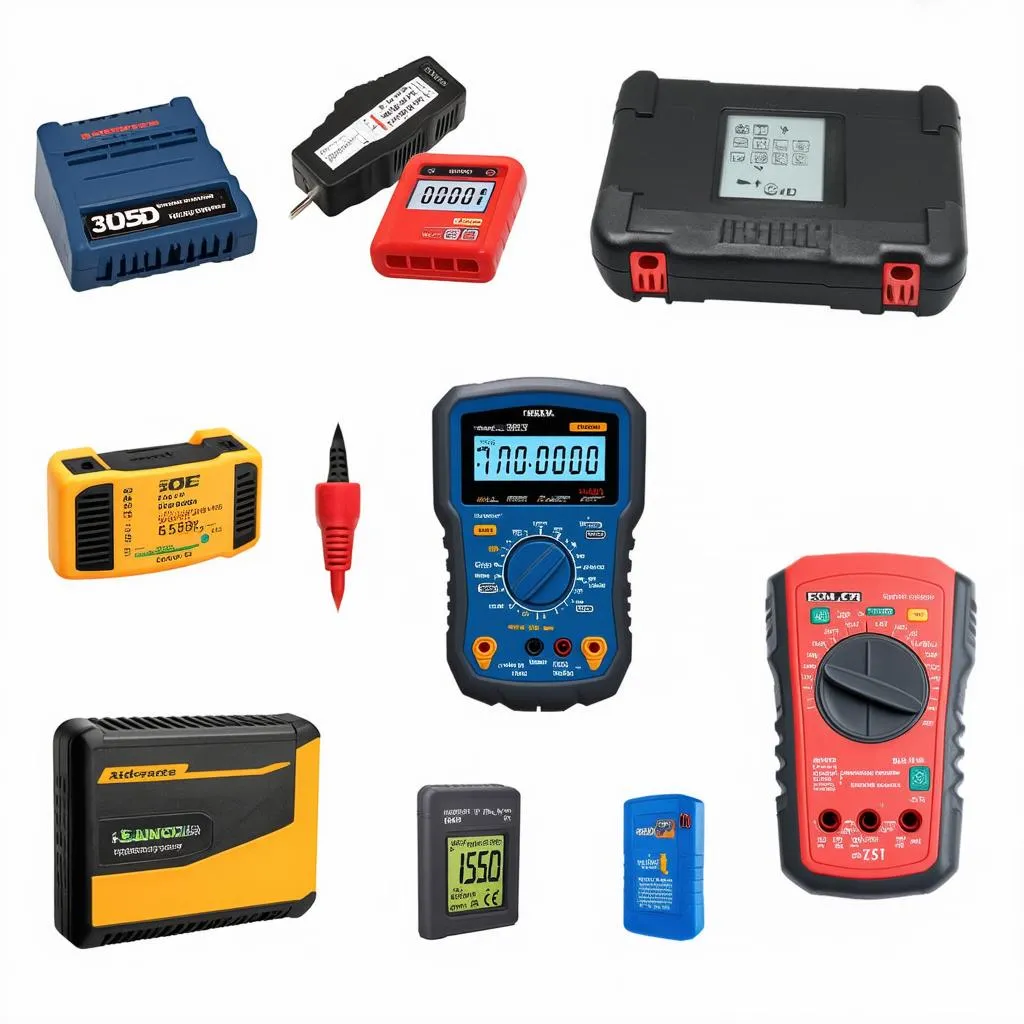Have you ever felt like your car was speaking a foreign language? You hear strange noises, see flashing lights, and wonder what the heck is going on. We’ve all been there! Thankfully, there’s a modern-day Rosetta Stone for your car: the Obd Auto Scanner. It’s a powerful tool that can unlock the mysteries of your vehicle’s engine, allowing you to diagnose issues, save money on repairs, and even enhance performance.
Understanding the Obd Auto Scanner: A Window into Your Car’s Soul
Imagine a tiny oracle, nestled within your car’s dashboard, holding the key to its inner workings. That’s essentially what an OBD auto scanner does. It connects to your vehicle’s On-Board Diagnostics (OBD) port, a standardized connector found in most cars manufactured after 1996. Think of it as a gateway to a vast database of information about your car’s health.
What Can an Obd Auto Scanner Do?
1. Diagnose Engine Problems: It can pinpoint potential issues like misfires, faulty sensors, and emissions problems, empowering you to address them before they escalate into costly repairs.
2. Read and Clear Diagnostic Trouble Codes (DTCs): Ever seen that dreaded “Check Engine” light? An OBD scanner can read and decipher the codes that triggered the light, providing valuable insights into the problem. It can also clear these codes after repairs, turning off that annoying light.
3. Monitor Real-Time Data: It can display live engine data like RPM, engine temperature, fuel trim, and more. This allows you to monitor your car’s performance in real-time, giving you valuable insights into its overall health.
4. Analyze Fuel Economy: It can track your fuel consumption and identify potential areas for improvement. This can help you save money on gas and reduce your carbon footprint.
5. Unlock Hidden Features: Some advanced scanners can access hidden features within your car’s computer, like adjusting shift points, enabling performance modes, or even customizing settings.
6. Assist with Car Maintenance: It can remind you about scheduled maintenance like oil changes, filter replacements, and more, ensuring your car stays in top shape.
What To Look For In An Obd Auto Scanner: Choosing the Right Tool for the Job
1. Compatibility: Ensure your scanner is compatible with your vehicle’s year, make, and model. Some scanners are designed for specific car manufacturers, while others are universal.
2. Features: Consider the features you need, such as code reading, live data streaming, data logging, and advanced diagnostic functions.
3. User Friendliness: Choose a scanner with a clear, easy-to-understand interface, especially if you’re not technically inclined.
4. Connectivity: Look for a scanner with Bluetooth or Wi-Fi connectivity for easy pairing with your smartphone or tablet.
5. Price: Set a budget and choose a scanner that fits your needs without breaking the bank. There are great scanners available at various price points.
The Power of Knowledge: How Obd Auto Scanners Can Empower You
Imagine a world where you can anticipate and prevent potential car troubles before they become major headaches. With an OBD auto scanner, that world is within reach. By gaining a deeper understanding of your car’s inner workings, you’re not only saving money on repairs, you’re also enhancing your driving experience.
Frequently Asked Questions
1. Can I use an OBD scanner to reset my “Check Engine” light myself?
- Absolutely! OBD scanners can read and clear diagnostic trouble codes, allowing you to reset the light after addressing the issue.
- However, it’s important to understand the underlying cause of the code before clearing it. Sometimes a light comes on due to a temporary issue that resolves itself. Clearing the code without fixing the problem may cause it to return.
2. Are all OBD scanners compatible with all cars?
- No. Some scanners are designed for specific car manufacturers, while others are universal. Check the compatibility information before purchasing.
3. Can an OBD scanner improve my car’s performance?
- While it can’t directly boost horsepower, an OBD scanner can help you identify and fix performance-related issues. This can indirectly improve your car’s efficiency and responsiveness.
4. Do I need to be a mechanic to use an OBD scanner?
- Not at all! Many OBD scanners are user-friendly and come with intuitive software that guides you through the process.
5. Is it safe to use an OBD scanner?
- Yes, OBD scanners are generally safe to use. They only access specific data from your car’s engine control unit and do not modify or interfere with its functions.
6. What is the difference between an OBD scanner and a code reader?
- A code reader is a basic device that only reads and clears diagnostic trouble codes. An OBD scanner is a more advanced tool that can access live data, monitor performance, and offer deeper insights into your car’s health.
Explore the World of Obd Auto Scanners: A Journey of Discovery
1.  OBD2 Scanner
OBD2 Scanner
2.  OBD2 Scanners for Mechanics
OBD2 Scanners for Mechanics
3.  Car Diagnostics Tools
Car Diagnostics Tools
As you delve deeper into the world of OBD auto scanners, you’ll discover a vast universe of information about your car, empowering you to make informed decisions about its maintenance and performance.
Need Help Choosing the Right Scanner or Navigating the Complex World of Car Diagnostics?
Contact our team of experienced auto mechanics at [Whatsapp: +84767531508] for personalized guidance. We’re here to help you unlock the secrets of your car, one diagnostic scan at a time!
We encourage you to share your experiences with OBD auto scanners in the comments below. Have you used one? What were your findings?
Disclaimer: The information provided in this article is for informational purposes only and should not be considered professional advice. Always consult with a qualified mechanic for any vehicle-related issues.